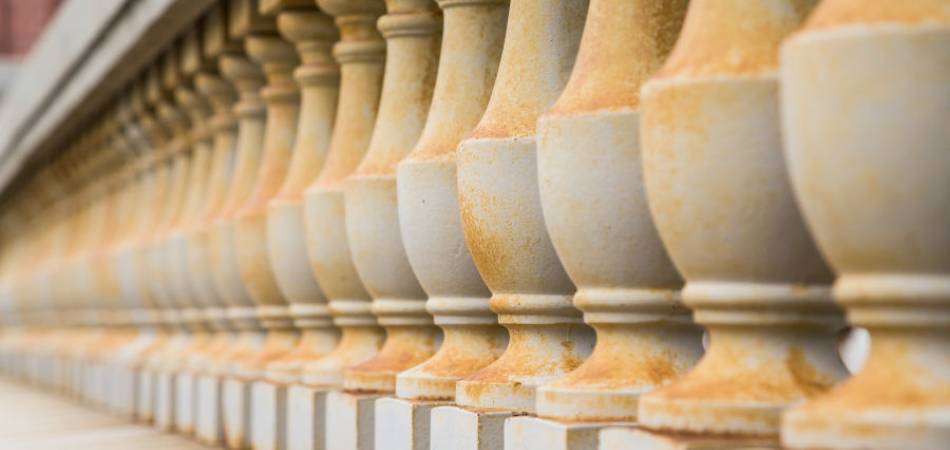Using bleach to get rid of rust seems a little counterintuitive. Bleach is used to remove things from fabrics and hard surfaces. That is what it is good for, right? If you find yourself wondering, “does bleach remove rust,” then this article is for you.
No, bleach doesn’t remove rust on any surfaces. Whatever happens, never apply bleach to rust or stains. It will negatively react with the rust and cause discoloration if you do so.
Bleach is used to whiten fabric and clean dirty surfaces. Although it can be a useful tool in your home, you should avoid using bleach on your metals and countertops as much as possible because of bleach’s oxidizing properties. It can react with rust and stain your surfaces.
Some claim it works for removing rust, but the truth is that it only makes the matter worse. So, if you are considering using bleach on rust materials, you should choose other methods. Below are ways to remove rust with effective materials instead of using bleach.
Contents
Rust Removal Solutions That Work Instead Of Bleach
Rust is inevitable in the house. It can occur in pans, knives, stoves and other metal surfaces. Rusting happens because of an iron reaction caused by extended water exposure.
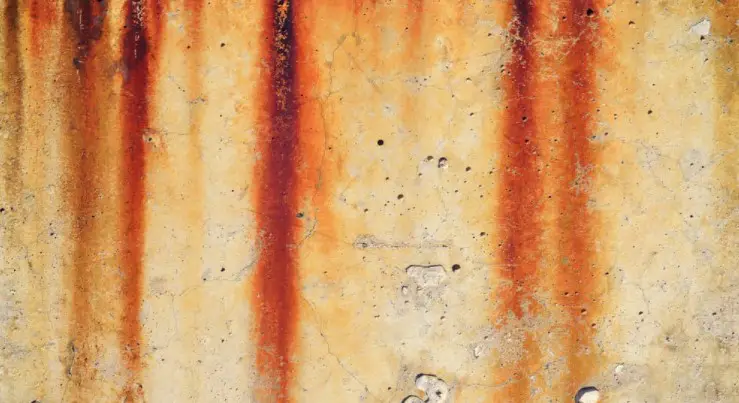
Removing rust is vital to avoid contamination of your household items. There are some household items that you can use to remove rust apart from the bleach. Here are some suggestions:
1. Vinegar
This is a popular item in most houses that works naturally to remove rust. It is ideal for a little metal item that can be soaked easily. You can use vinegar to remove rust by soaking the little utensils inside it for 24 hours.
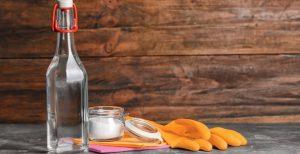
By the next day, all traces of rust will be gone. White Vinegar is recommended because it is less costly and works well.
2. Lemon juice
After scrubbing and the rust refuses to budge, use another great natural solution to remove rust.
Lemon with salt will do the trick. Put the salt on the surfaces and rub slowly then gently squeeze a small dose of lemon over the metal.
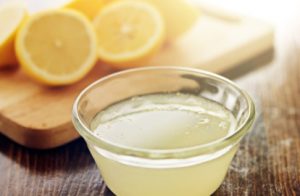
Leave for some hours (preferably 4-5hrs), then get an aluminum foil and scrub tightly.
3. Potato
Perhaps you are surprised that potatoes can be used for other purposes than eating. However, potatoes have oxalic acid which is very useful to remove rust.
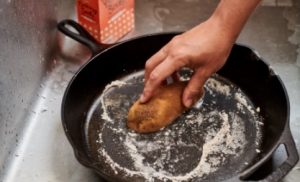
To use potato to remove rust, slice into two, get a baking soda, pour the soda around the rusted area before scrubbing with the sliced potato. Repeat the process till the metal surface shines.
4. Baking Soda
While Baking soda can be used with potatoes, it can on its own be used to remove rust. To apply it, mix the baking soda with small water and stir slowly. Pour the mixture around the affected rusted surfaces and scrub gently.
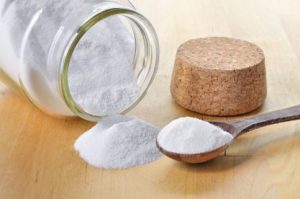
You will have to repeat this process three to four times to get the best results.
5. Molasses
Molasses have high mineral content which acts as a chelating ion and Bonding agent on metals. To apply Molasses, mix 8 cups of water and a single part of molasses.
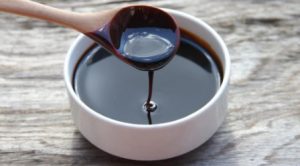
Put the item with rust in the solution and soak it till the rust wears off completely. Remove when you notice the rust is off and clean with fresh water.
Why Can’t Bleach Remove Rust?
Does bleach remove rust, No. Here is why bleach is a bad choice to remove rust:
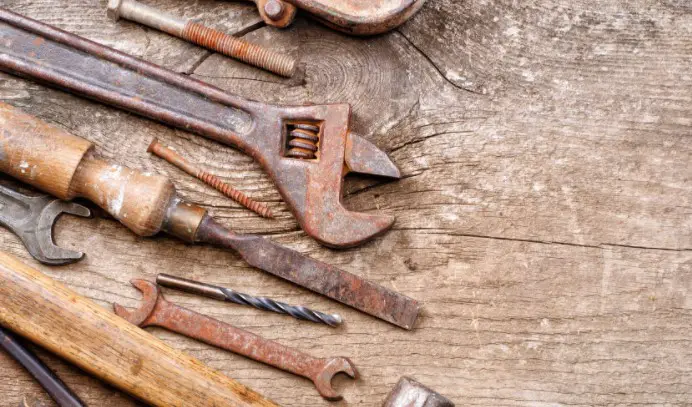
Low PH level: Bleach comes with a small pH level which is necessary to remove rust. pH levels are used in measuring alkaline and acidic bases of substances.
With around 11 to 12 pH levels, it won’t work on rusted surfaces. Metals are very thick and need a higher pH level to get rid of their rustiness. If you insist on using bleach, you will be causing more damage.
Bleach is highly corrosive: Bleach is an extremely corrosive agent which will chew gradually at metals unless they are fortified. The corrosive nature of bleach has made it a bad choice to remove rust from metals and concrete.
Bleach can effectively remove dirt from clothes because it can dissolve easily in water and oil.
Bleach requires a lot of diluting before working: With bleach, it has a low active ingredient, therefore, you will need to mix with lots of water before it can work effectively. If you don’t mix enough water, there won’t be enough to remove stains.
As prolonged exposure to water causes rust, mixing bleach with water won’t have the desired result on rust.
Bleach will negatively affect any material you used to remove rust: Many homes used metal appliances to remove rust from metal surfaces. Good suggestions are metal sponges and wire brushes.
However, if you try to use these tools with bleach to scrub rust surfaces, the tools themselves will be damaged and need immediate replacement.
Frequently Asked Questions (FAQ’s)
Can rust be removed completely from surfaces?
Yes, rust can be removed totally from surfaces. You can either use natural rust removal solutions like lemon and potato or buy chemical products which can do a good job at removing all rust.
How can I remove rust from metal?
The choice depends entirely on you and what works for you. You could choose home and natural remedies like vinegar and coak.
Just soak the rusted metals in these solutions for some hours. For quicker results, add some salt and scrub gently.
How can you remove rust stains from clothes?
You can remove rust stains from your clothes by applying a less harsh solution. Lime is ideal because it has a mild acid which when used on the fabric, can work perfectly.
Just leave for a few minutes, remove and wash using your washing machine.
Final thoughts
Does bleach remove rust, sadly No. Bleach is bad for removing rust on concrete and metals, however, you can use it to remove stains from clothes. To prevent rust on your pacers and household furniture, seal them tightly to avoid exposure to moisture.
Also, ensure you clean up spills quickly which may cause alkaline or acidic spills. If you can try to avoid storing gas and chemicals close to your home and use more wood instead of metal furnishings. Because of the low pH level of bleach, it could eat at any surfaces it comes in contact with.

